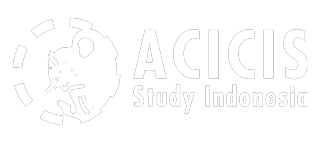Meleva Thorn was a participant in the 2021 Virtual Journalism Professional Practicum. Meleva is studying a Bachelor of Communications at Murdoch University. She received a $3,000 New Colombo Plan Mobility Grant to support her participation in this program.
Q: Why did you decide to undertake the ACICIS program?
I decided to undertake the ACICIS virtual internship to gain experience in the journalism industry. As my goal is to become a foreign correspondent, I particularly wanted experience at a foreign newspaper. The ACICIS program was the perfect opportunity to learn more about this potential career path.
Q: Did you receive a New Colombo Plan Mobility Grant? Do you think the NCP is an important initiative?
I did receive the NCP Grant, and I believe it is an incredibly important initiative as it allows all Australian tertiary students the opportunity to participate in the program. This is due to the help it provides in paying for tuition fees and other associated program costs that students might struggle to afford without the grant.
Q: What did you find to be the more rewarding part of this virtual program?
The practical experience was probably the most rewarding part of the program, as having the opportunity to write for The Jakarta Globe was a huge privilege. Researching about, interviewing for, and writing up the various stories I was tasked with or pitched was a really exciting and challenging experience. I think it has really helped me learn more about today’s news industry and where I fit within it.
Q: What did you find to be the most challenging about your experience on this virtual program?
The most challenging part would probably be either getting used to online learning and working virtually again or the first time I saw that my article had been heavily edited. Seeing my work changed so much was a shock, but I realised it was done for a reason and that this was a major learning experience about the journalism industry and the way newspapers work.
Q: What organisation did you intern with?
During my internship with The Jakarta Globe, I had to copy-edit other people’s articles as well as write stories that were assigned to me or that I pitched. My HO mentor helped us by communicating with my editor.
Q: How have you found the work culture (albeit online) of your host organisation? How is it different to work experience in Australia?
The online element was challenging, as at times I found it quite isolating working from home. I wish I had been able to meet everyone in-person, but hopefully I will someday when the pandemic is over! The Jakarta Globe was very kind and understanding, and if I ever had a serious question or problem with the work then they helped me to solve it.
Q: What are the main skills you have learnt during your virtual internship?
The virtual internship taught me many lessons and helped me work on many skills! Not only has the virtual internship helped me learn more about writing and copy-editing, I have also discovered more about the editorial process, co-writing an article, and basic journalism skills such as interviewing and researching.
The virtual nature of the program also meant I had to work on skills such as self-discipline, organisation, and self-motivation, which in a way I found to be the most challenging aspect.
Q: How will the virtual internship benefit or influence your career?
This was the first time I had experienced working for a newspaper, and it showed me that it is the kind of journalism industry I am passionate about building my future career in.
The internship has also benefitted my future career more tangibly. Writing several articles for The Jakarta Globe has expanded my portfolio and resume. Furthermore, the process of researching and writing the stories has helped me gain several important future contacts.
There are many positive benefits and influences on my future career from the program.
Q: Why it is important for Australians to learn more about Indonesia and vice a versa?
It is so important for Australians to learn about Indonesia and vice versa, for a wide variety of reasons.
Geographically our countries are very close, and so we have a very unique political, economic and cultural relationship.
This is evident in the recent IA-CEPA agreement, the strong tourism industry between West Australia and Bali, and the teaching of Bahasa Indonesia in many Australian schools and universities.
Studying the Indonesian language and learning about the Indonesian culture helps Australians to make this a positive relationship. The same can be said when Indonesian people learn about Australia, leading to a strong and happy relationship between the two “tetangga” (neighbours).
Q: Would you recommend this virtual program to your friends?
I would most definitely recommend the program to my friends! I am so grateful for the opportunity as it has had such a huge impact on me and my future. If you know someone who is interested, please encourage them to sign up!


